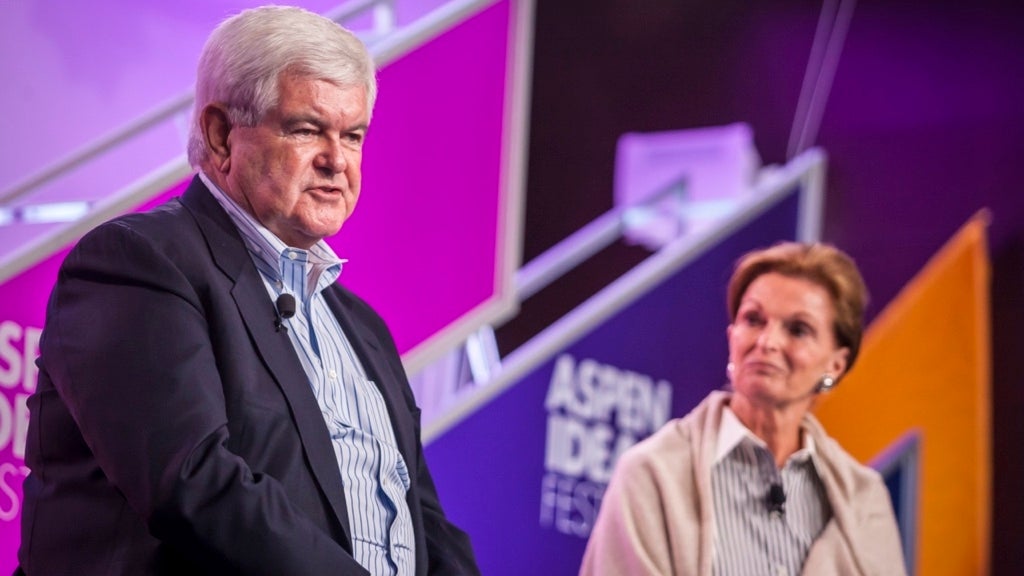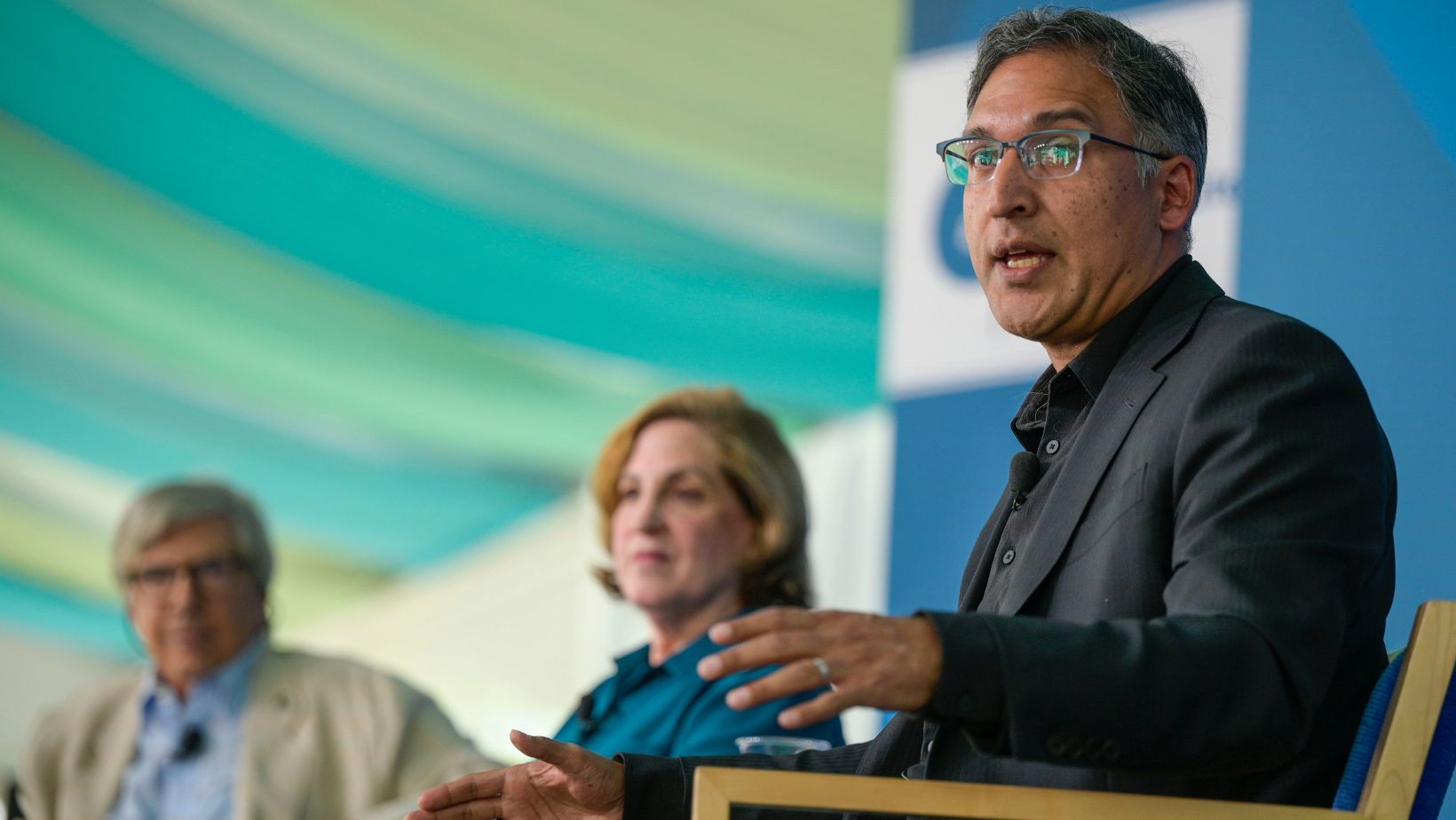
Over the past year, Donald Trump has alleged that Mexican immigrants are criminals and rapists, called for a ban on Muslims entering the United States, and stated that a Mexican American judge presiding over a Trump University lawsuit was “biased” because of his heritage. In June, House Speaker Paul Ryan described Trump’s criticism of the judge as “the textbook definition of a racist comment.” But a former Speaker of the House and Republican presidential candidate Newt Gingrich maintains that, while many of Trump’s comments have been misguided, “there’s no evidence at all that Trump is a racist.”

Gingrich is reportedly being vetted as a running mate for Trump, and the Washington Post has reported that he’s the leading candidate in a group that includes the New Jersey Governor Chris Christie, Senators Jeff Sessions and Bob Corker, and Indiana Governor Mike Pence. But in a discussion with Ann Korologos at the Aspen Ideas Festival Saturday, co-hosted by the Aspen Institute andThe Atlantic, Gingrich told attendees not to bet on him. “It really messes up your life,” he said, adding that any decision would depend on finding out how much power Trump wants his running mate to have. “I have a very simple test question: If it’s about [going to] funerals, I’m not interested.”Speculation about Gingrich’s vice-presidential hopes rose earlier this week when Gingrich publicly reversed his long-held position on free trade. Trump has called the North American Free Trade Agreement, which Gingrich helped pass in 1994, “the worst trade deal” in U.S. history; in an email to Politico, Gingrich said that he “basically” agreed with Trump, and that the country is now “in a different era.” His comments seemed to help unite the two men on one of their biggest stated differences on policy, smoothing the way for a possible alliance.
But Gingrich said he hasn’t had any conversations with Trump about being on the ticket, and that his ideal role might be that of an unofficial adviser. Whether or not Trump can win in November, he said, depends on whether he can “quit screwing up, and get the election down to three or four issues, all of which come down to a single concept: enough.”
Over the course of an hour, Gingrich spoke candidly about Trump’s personality, the mistakes he’s made over the course of his campaign, why his nomination signals a shift in American culture, and how Republican leaders in Congress have considerable leverage should Trump be elected. “Let’s assume for a second, which many of you will find horrifying, that Trump wins,” he said. “The first person he has to talk to about appointing a cabinet is the Senate Majority Leader, so if McConnell and he aren’t dancing, he has a huge problem.”
Gingrich’s long history of wrangling Congress likely makes him a valuable candidate to Trump, who has no political experience. Last month, Trump fired his campaign manager, Corey Lewandowski, after he reportedly clashed with his campaign chairman, Paul Manafort. During his 20 years in Washington, Gingrich presided over the first Republican majority in the House of Representatives in 42 years, passing welfare reform and a capital-gains tax cut before resigning in 1998 after an attempted coup on his leadership and a reprimand for ethics violations.
“Trump has said over and over again he needs a vice president who understands Washington, because he doesn’t,” Gingrich said. Even though he expressed skepticism as to whether the role would suit him, he also seems to have thought deeply about Trump’s strengths and flaws. “I give Trump some slack, because prior to June of last year he was a private citizen,” he said. “A noisy, loudmouth private citizen … but he was happy being who he was.”
The best way to understand Trump, according to Gingrich, is to think of him as one part Andrew Jackson, one part Theodore Roosevelt, and one part P.T. Barnum. The reason Trump won, Gingrich said, was that in a climate of suspicion toward elected officials, other candidates mostly ran on the strength of their political experience. “People who are sick and tired of Washington don’t want someone who can manage the table better,” he said. “They want someone who will kick the table over.”
This article originally appeared at the Atlantic.

